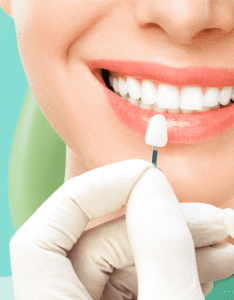It is common for gums to bleed when flossing. This can be a sign of gum disease, but there are other reasons why your gums may bleed. Bleeding typically indicates the presence of inflammation in the tissue or an injury to it. If this condition persists, you should speak with your dentist so they can determine what caused the bleeding and recommend treatment options if necessary. This article will answer the question of “How do I prevent gum disease and bleeding with I floss?”
#1 – Try Updating Your Dental Routine
Brushing and flossing are the best way to maintain your dental health. It is important that you brush properly, with a soft bristled toothbrush for 2 minutes at least twice daily in order to avoid early gum disease symptoms such as red gums or bad breath! Brushing all surfaces of each set of upper/lower jaws will keep gums healthy by removing bacteria that causes gum disease before it has time cause problem; regular use is essential so make sure you do at least 2 minutes worth twice daily.
Choosing the right toothpaste is also a valuable update to your routine. Finding a good fluoride toothpaste is the right way to go. When it comes to picking which fluoride toothpaste to choose from, do some research before heading to the grocery store. A good option is the Colgate Cavity Protection Toothpaste with Fluoride. This toothpaste is ADA accepted, contains the right amount of fluoride for cavity protection, and has a nice fresh mint flavor which leaves your mouth feeling super fresh afterwards.
Daily flossing is the best way to keep your teeth healthy and strong. If you find it difficult in certain areas, use a water or hand-held tool like an electronic toothbrush for extra guidance on those tight spaces! You should be gliding the floss up and down between each tooth and then under the gum line.
#2 Switch To A Healthier Diet
You should be implementing lots of fruits and vegetables into your every day diet. By switching to a more well-balanced diet, you will be not only improving your oral health but your overall health and well-being. Staying away from candies, sodas, and refined foods will ensure that you are staying away from the bad sugars that can feed inflammation-inducing bacteria in the mouth.
If you are looking for some good snacks or foods to add to your diet that will be beneficial to good overall oral health, here are some options to try:
- Crunchy vegetables like celery and carrots
- Crisp fruits like apples and pears
- Nuts like almonds, Brazil nuts and cashews
#3 Stay Away From Smoking
One of the most common oral health problems in America is gum disease. This condition can be caused by smoking cigarettes, which contain harmful toxins that irritate your gums and stop proper circulation from occurring normally within them as well cause nutrient absorption issues for those who chew on one side more than another which could result eventually in tooth loss at some point down the line if left untreated. While quitting this bad habit isn’t easy ,you’ll find yourself enjoying better dental care thanks largely due to making healthier choices with what goes into our bodies!
#4 Reduce Stress In Your Life
Life can get stressful at times for us all. People say that a stressful lifestyle is the key to bad oral health. When you are constantly stressed out, your immune system can’t fight off infections and inflammation in time for when it matters- which could lead not only an increased risk of dental problems but also other medical concerns. When you are stressed and overwhelmed, for some people that means neglecting simple self-care tasks, like brushing and flossing or choosing to put harmful things into their bodies. Learn to take more time for yourself. If you are too stressed, learn to just say “no”. Try breathing exercises, meditation apps, essential oils, or going for a quick walk for some easy stress reliefs.
You need to see a dentist if you’ve been missing dental checkups, your teeth are becoming more sensitive after brushing, or if you are beginning to see some bleeding when you’re flossing. Make an appointment with Dr. Jackson today!





